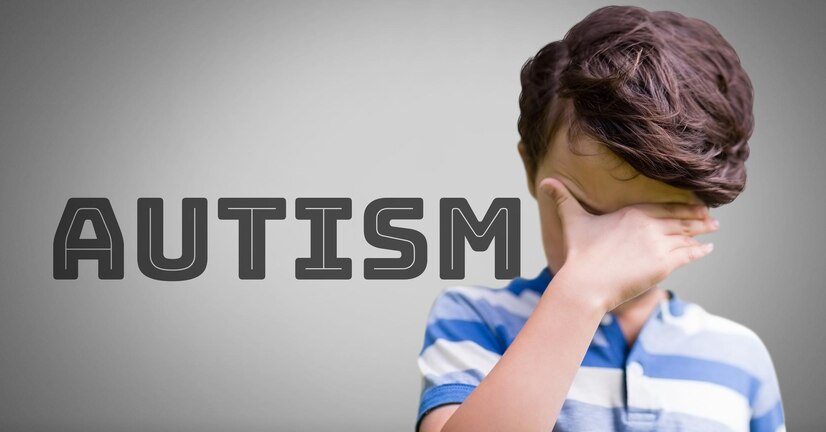
As a parent or caregiver of a child with autism, you’re already a champion, navigating through a world that often doesn’t understand the unique beauty of your child. However, there’s a challenge many parents face that can feel overwhelming: bullying.
Children on the autism spectrum are more likely to face bullying than their neurotypical peers. This can be heart-wrenching, but with the right strategies, we can make schools, communities, and homes a safe space for our little ones!
But how do we start? How can we support our children to stand tall in the face of bullying?
Understanding Bullying and Autism: What’s Really Going On?
According to a 2018 study, ‘Adverse Childhood Experiences in Children with Autism Spectrum Disorder’, children with autism are three times more likely to be bullied than their peers. Why? Social differences, for instance, play a big role. Children with autism often struggle with interpreting social cues, which can make them more vulnerable to bullying or harassment.
Whether it’s misunderstanding a joke, difficulty grasping social conventions, misinterpreting the intentions of others, taking comments or actions too literally, struggling to join peer groups, or not knowing how to respond in a social situation, these differences can, unfortunately, make them a target.
But here’s where the silver lining shines through: as caregivers, we can take steps to both prevent bullying and empower our children to deal with it. Understanding the root cause is the first step, and the next is implementing strategies that will truly make a difference.
The Power of Education: Spreading Awareness
One of the most effective ways to prevent bullying is by creating an inclusive and understanding environment. Schools and communities need to be educated about autism; when peers understand what autism is—and what it isn’t—they are less likely to bully and more likely to offer support. Programs like autism awareness weeks or classroom talks can help shed light on the spectrum of behaviors associated with autism.
However, it’s natural to wonder, can awareness and education really make that much of a difference?
Research says yes!
A recent study found that inclusive education programs that teach children about differences lead to a reduction in bullying behaviors. Schools and communities that foster empathy create environments where all children, regardless of ability, can feel safe and valued.
Communication is Key: Encourage Open Dialogue
Are you worried that your child is being bullied? Sometimes, children on the autism spectrum may not fully grasp that they’re being bullied, especially if it’s verbal or relational bullying. And that’s exactly why it’s crucial to create a safe space for open communication.
Start with gentle questions. “How was your day?” or “Did anything happen at school that made you feel uncomfortable?” can be great conversation starters. Be patient, and give them time to respond. If your child has difficulties with verbal communication, try using visual aids or social stories to help them express their feelings. Encouraging this open dialogue helps children feel secure in sharing difficult experiences!
Build Social Skills: Empower Your Child
While education and communication are essential, empowering your child is just as critical. Social skills training is an excellent tool that can help children on the spectrum navigate tricky social situations, and even prevent bullying from happening in the first place.
Social skills groups, often run by schools or therapists as well as autism care centers like Early Autism Ventures (EAV), teach children how to interpret social cues, make friends, and respond to bullies. In fact, a 2015 study found that supportive and positive classroom and school cultures at the social environment level are linked to a reduction in bullying behavior.
Think of it this way: by guiding your child on how to handle unkind behavior, you’re not just helping to prevent bullying—you’re empowering them with valuable life skills that will benefit them for years to come.
Partner with Your Child’s School: Building a United Front
How well does your child’s educational institution handle bullying? Schools play a vital role in preventing and addressing bullying, especially for children with autism, who may be more vulnerable. So, don’t be afraid to advocate for your child’s needs.
Most schools, even institutions for children with special needs, are required to have anti-bullying policies in place, but that doesn’t mean they’re always effective. This is exactly why it’s important to work closely with teachers, counselors, and school administrators to ensure that your child is being supported.
Ask the school about their bullying prevention strategies. Are teachers trained to spot bullying? Do they have a zero-tolerance policy in place? When everyone—teachers, administrators, and parents—works together, the likelihood of bullying decreases dramatically.
If you feel like your concerns aren’t being taken seriously, don’t hesitate to escalate the issue. Every child has the right to feel safe at school!
Provide Emotional Support: Helping Your Child Heal
Sometimes, despite our best efforts, bullying may still occur. How can we support children who’ve been bullied? It’s heartbreaking to see your child hurt, but know that with the right care, they can recover. Focus on building their self-esteem and reassuring them that being different is something to celebrate.
Encouraging hobbies and interests is a great way to boost confidence. Whether it’s art, music, or robotics, finding activities where your child excels can help them feel more confident in who they are. Emotional support is also essential. Let them know you’re there for them unconditionally.
Professional counseling can also make a world of difference. If your child has been deeply affected by bullying, a therapist with experience in autism can help them process their feelings and develop strategies for coping.
At Early Autism Ventures (EAV), we specialize in Applied Behavior Analysis (ABA) and Cognitive Behavioral Therapy (CBT)—both evidence-based approaches that can be highly effective in addressing bullying behaviors and their impact.
Our expertise in these therapies allows us to provide targeted support that helps children develop the social and emotional skills needed to overcome challenges related to bullying.
- ABA is widely recognized for its ability to improve social skills and behavior, making it particularly useful for children who may struggle with interpersonal interactions. By focusing on positive reinforcement and behavior modification, ABA can help children better understand appropriate responses to bullying and develop healthier ways of interacting with peers.
- CBT is also strongly supported by research and is especially effective in helping children manage the emotional impact of bullying. CBT teaches children how to identify and reframe negative thoughts, build resilience, and develop effective coping strategies. It empowers them to address bullying by changing how they think about and respond to such situations, reducing feelings of anxiety and helplessness.
Both approaches are grounded in extensive research, and when applied to bullying prevention and intervention, they can help children develop the confidence and skills needed to navigate challenging social dynamics and reduce bullying incidents.

With the right tools, education, and the dedicated support from our experienced team at EAV, we can empower your child to stand tall, be proud of who they are, and confidently face any challenge that comes their way.
Ready to take the next step in supporting your child? Reach out to us at Early Autism Ventures (EAV) today—our team is here to help your child thrive! Request a FREE consultation.
Contact us now to get started: +91 8929153820


Recent Comments